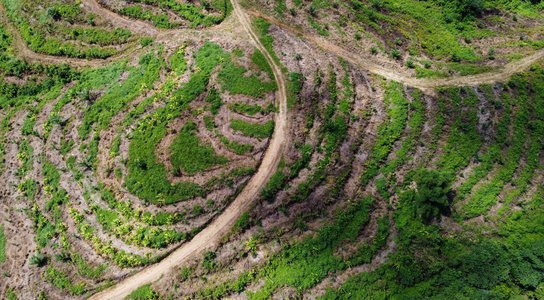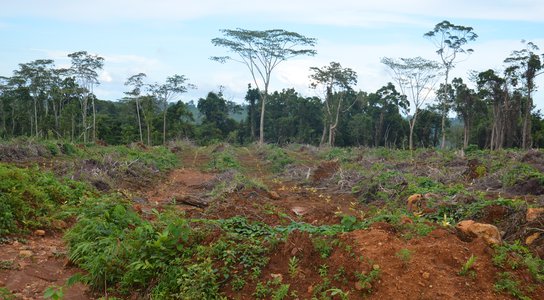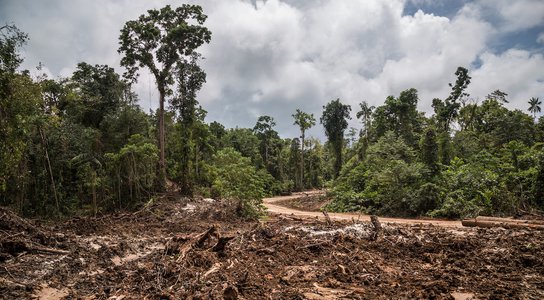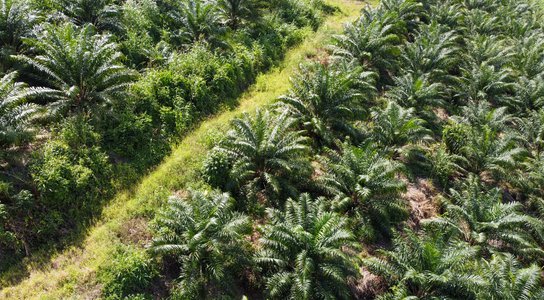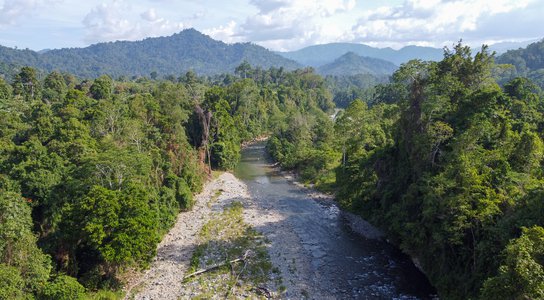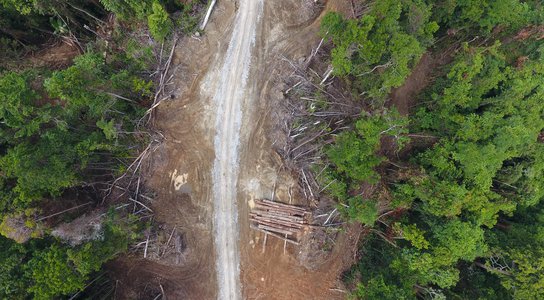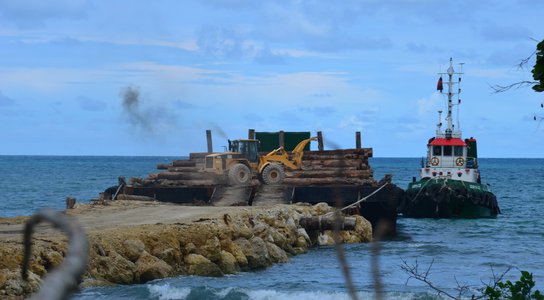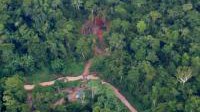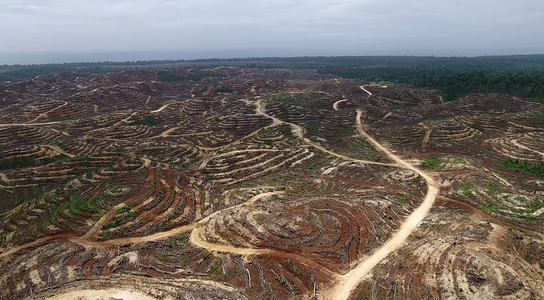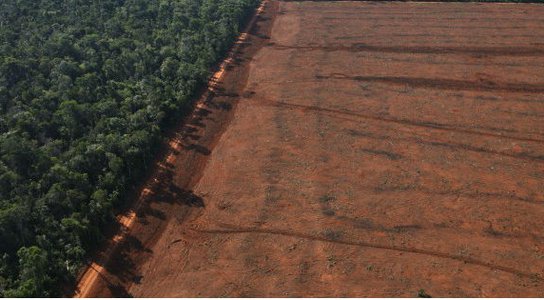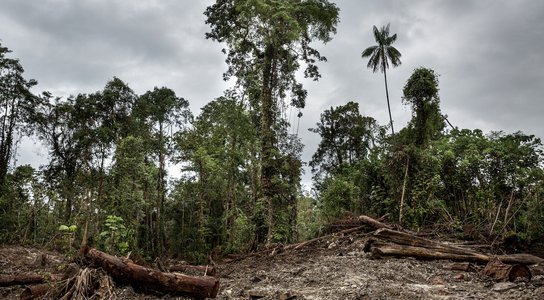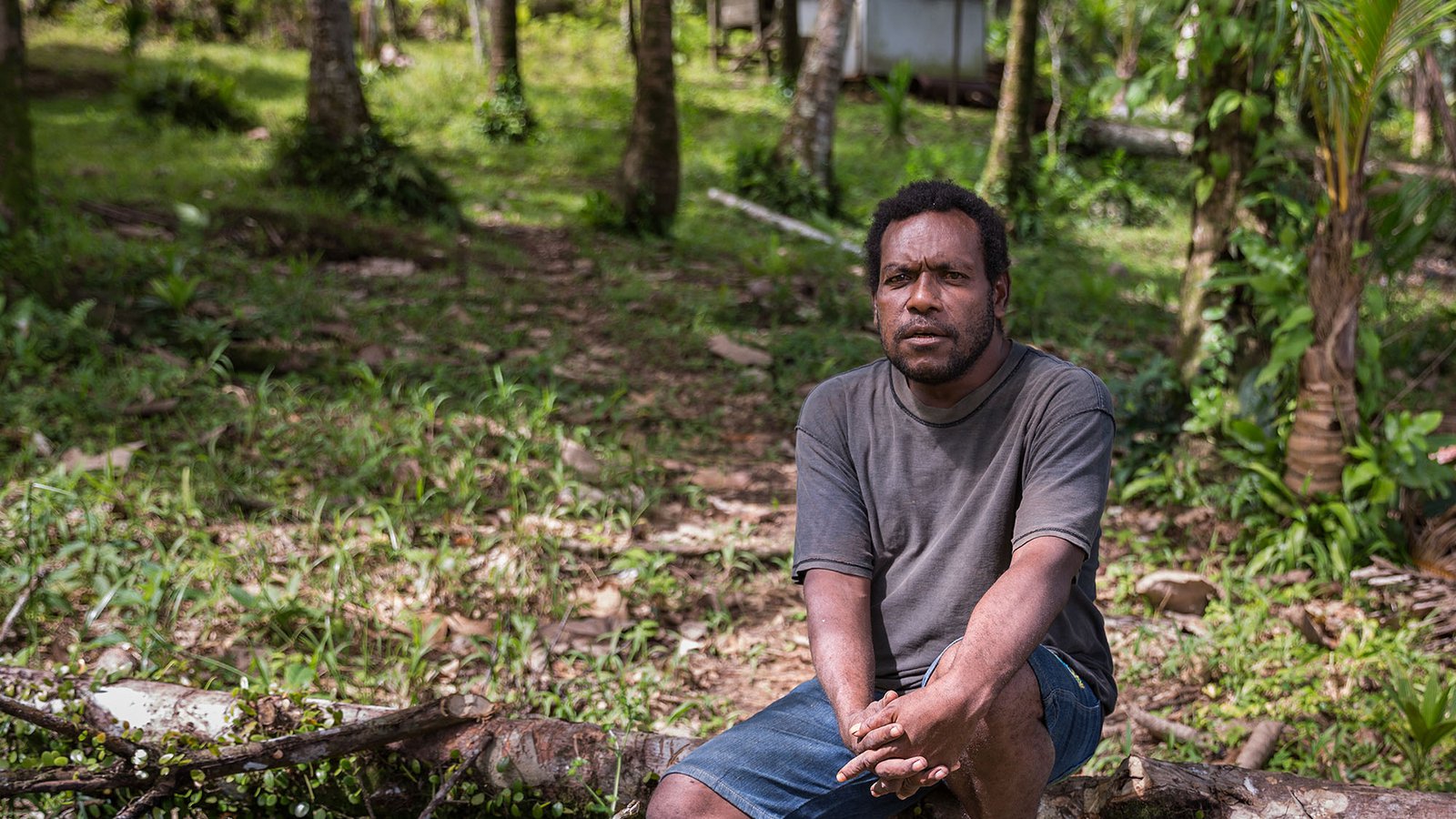While lesser known than the Amazon or the Congo Basin, the vast rainforests in PNG play a crucial role in storing carbon and regulating the world’s climate. They also directly support the livelihoods of the country’s rural population.
Although almost all land in PNG is legally controlled by indigenous groups, agricultural projects including palm oil have co-opted millions of hectares of land and forests, with grave results for community lives and livelihoods. We have for many years investigated what is one of the largest land grabs in modern history as well as the rampant trade in illegal logging.
As our investigations including 2018’s A Major Liability have shown, timber sourced from Papua New Guinea is mostly destined for China. This is the world’s largest bilateral trade in tropical logs, worth hundreds of millions of dollars a year. Through our advocacy work, we have been calling for regulation in China to keep illegal timber from entering its borders.
Papua New Guinea is a key focus of our work to protect climate critical forests by campaigning for those who are financing forest destruction to think again and take responsibility. In our 2019 report Money to Burn, for instance, we revealed the financial actors who had funded a company operating palm oil plantations whose creation has destroyed more than 20,000 hectares of forest in PNG. Our 2020 report, Bending the Truth illustrated how a complex web of companies enabled by global financial institutions - and a lack of regulation in regional powers such as China - destroyed forests in a PNG biodiversity hotspot.
Only with action from governments, business and investors supporting Papua New Guinea’s communities can its forests be protected for the people and biodiversity that depend on them, and our global climate.
